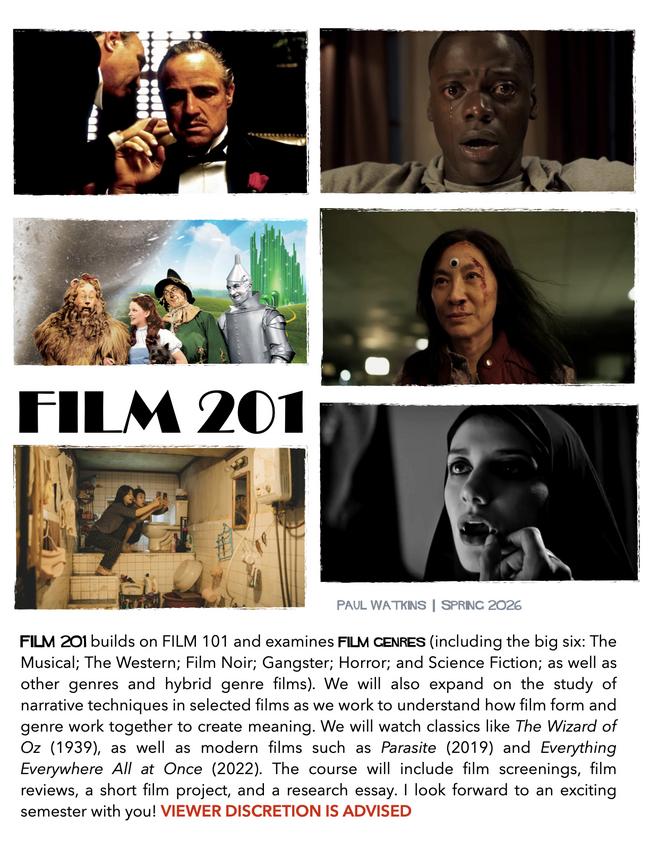Fall 2025
| Course Number | Course Description | Professor |
|---|---|---|
| 204 | Business and Technical Writing | Multiple Instructors |
| 208 | Introduction to Public Speaking | Multiple Instructors |
| 220 | Canadian Literature in Context | Horsburgh |
| 231 | Speculative Literature | Skibo |
| 240 | Ways of Reading | Carpentier |
| 273 | Ancients and Moderns | Moosa |
Spring 2026
| Course Number | Course Description | Professor |
|---|---|---|
| 204 | Business and Technical Writing | Multiple Instructors |
| 208 | Introduction to Public Speaking | Multiple Instructors |
| 221 | North American Indigenous Literatures | Skibo |
| 230 | Literature and Popular Culture | Hagan |
| 232 | Children's Literature | Klan |
| 274 | Literary Traditions | Surkan |
Fall 2025 – Course Descriptions
ENGL 204: Business and Technical Writing
Multiple Sections

An introduction to business and technical communication skills with a focus on documents (such as letters and reports) and presentations. Topics may include planning, outlining, summarizing, presenting data, handling references, and editing. The course comprises several practical assignments, including a formal report and an oral presentation. ENGL 204 was formerly called ENGL 225; credit will not be granted for both courses.
ENGL 208: Introduction to Public Speaking
Multiple Sections

An introduction to public speaking that focuses on the creation, organization, and delivery of speeches for non-dramatic purposes. It provides the rhetorical principles of effective and ethical public speaking, offers opportunities to become familiar with different speaking situations, and attempts to instill a sense of the importance of public speech. ENGL 208 was formerly called THEA 203; credit will not be granted for both courses.
ENGL 220: Canadian Literature in Context
Professor Amelia Horsburgh
This iteration of the course explores Canadian literature, specifical the home and kinship with community, of the past 100 years. Race, Indigeneity, immigration, and colonization will be our lens. We will explore what makes a Canadian family, barriers we face, and how this colours our literature. Select authors and works may include Sinclair Ross’s novel As For Me and My House, Margaret Laurence’s short story collection A Bird in the House, Mavis Gallant’s short story collection Home Truths, Bonnie Burnard’s novel A Good House, and Métis poet Gregory Scofield’s Singing Home the Bones.
ENGL 231: Speculative Literature
Professor Bryn Skibo
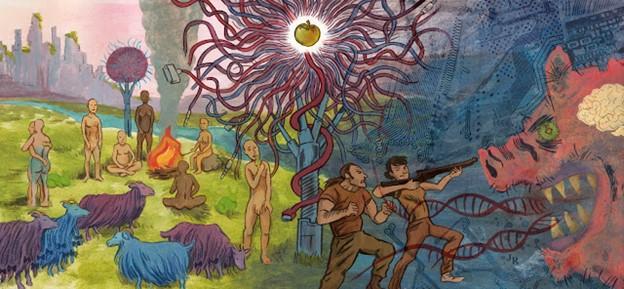
With The Handmaid’s Tale (HMT) approaching its sixth and final season, the popular discourse around Margaret Atwood, easily one of Canada’s most renowned authors, tends to focus on the Amazon Prime TV series. While The Handmaid’s Tale is an understandably popular (and regretfully timely) novel, readers are sometimes surprised to learn that Atwood has been exploring the genre of speculative fiction for decades, continuing her work in the genre well after the 1985 publication of HMT. This seminar will explore Atwood’s lesser known speculative trilogy, Oryx and Crake (2003), The Year of the Flood (2009), and MaddAddam (2013); these works are distinct among Atwood’s oeuvre for being her only trilogy to date, for providing her first male narrator in (by then) 10 novels, for showcasing her longstanding interest in environmental causes and scientific advancements, for focusing on interactions between nonhumans and humans, and for expanding her dystopian societies, from HMT’s theocracy to the trilogy’s corporatocracy. The trilogy also offers one of Atwood’s most impressive instances of world-building, as the novels together comprise 1,195 pages. In response to this length of content, we will limit our consideration of outside sources and focus on “slow reading,” or in-depth, detailed analyses of the novels, in terms of themes, language, allusions, and plot and character development. By the end of the semester, students will have a comprehensive “map” of the trilogy, based on their readings and class conversations, pertaining to content, structure, and style from which to develop their research essays.
Image: Riordan, John. “MaddAddam.” Johnny Fighters, 9 December 2013, www.johnnyfighters.blogspot.com/2013/12/maddaddam.html.
ENGL 240: Ways of Reading (online asynchronous)
Professor Sally Carpentier
ENGL 273: Ancients and Moderns
Professor Farah Moosa
RESPONDING TO THE CANON
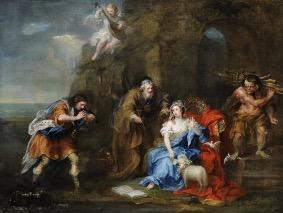
William Hogarth, scene from Shakespeare’s The Tempest, c1735
Join us as we read selected classic British literary texts alongside twentieth and twenty-first century responses to them (primarily plays and novels). Situating our readings in their historical, social, and cultural contexts, we will consider how and why contemporary writers have decided to “write back” to, re-vision, or reimagine canonical works. We will discuss issues of colonialism, empire, nation-building, class, race, gender, sexuality, home, and homecoming. Texts may include William Shakespeare’s The Tempest alongside an English translation of Aimé Césaire’s Une Tempête, Daniel Defoe’s Robinson Crusoe alongside J.M. Coetzee’s Foe, and Charlotte Brontë’s Jane Eyre together with Jean Rhys’ Wide Sargasso Sea. We may also watch Julie Taymor’s The Tempest.
Spring 2026 – Course Descriptions
ENGL 204: Business and Technical Writing
Multiple Sections

An introduction to business and technical communication skills with a focus on documents (such as letters and reports) and presentations. Topics may include planning, outlining, summarizing, presenting data, handling references, and editing. The course comprises several practical assignments, including a formal report and an oral presentation. ENGL 204 was formerly called ENGL 225; credit will not be granted for both courses.
ENGL 208: Introduction to Public Speaking
Multiple Sections

An introduction to public speaking that focuses on the creation, organization, and delivery of speeches for non-dramatic purposes. It provides the rhetorical principles of effective and ethical public speaking, offers opportunities to become familiar with different speaking situations, and attempts to instil a sense of the importance of public speech. ENGL 208 was formerly called THEA 203; credit will not be granted for both courses.
ENGL 221: North American Indigenous Literatures
Professor Bryn Skibo
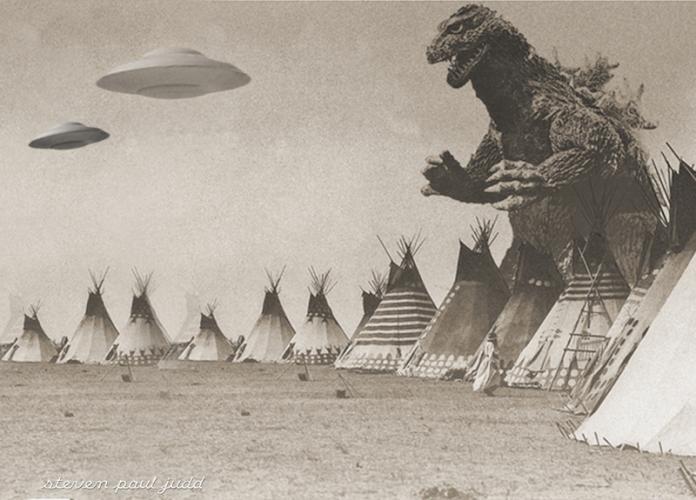
This seminar will read Indigenous apocalyptic fiction and consider how these texts speak to and against discourses in social and civil disruption, environmental disaster, and loss. We’ll explore what social mores and conventions are abandoned, what/who survives and thrives after destruction, and what is valued throughout. Close readings of these works will illuminate not only how authors of different Indigenous communities dramatize worlds coming to an end and worlds blossoming anew, but also how these texts act as commentary and a means to interpret the destruction and potential regrowth that is present in our yesterdays, todays, and tomorrows. Basically, while apocalypses may sound bleak, we’ll likely spend even more time discussing the unique hope and power that these novels and short stories offer, precisely in their emphasis on destruction.
Image: Steven Paul Judd (Kiowa/Choctaw). “The Summer They Visited.” (2014).
In American Indian: The Magazine of Smithsonian’s National Museum, vol. 17, no. 14, Winter 2016, https://www.americanindianmagazine.org/story/pop-culture-native-satire
ENGL 230: Literature and Popular Culture
Professor Sandra Hagan
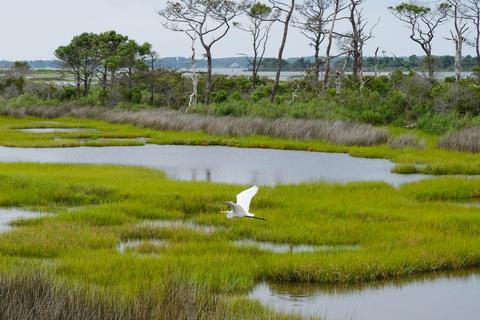
THE 21st-CENTURY SENSATION NOVEL
In seeking to define chick noir—a new publishing phenomenon that emerged a decade ago—one journalist described these books as “thrillers thrown into the domestic sphere, tales of intimate betrayal and mistrust.”[1] Critics of popular culture looking farther back to the Victorian era would have found a ready-made term for such domestic thrillers: the sensation novel. Emerging in 1860s Britain from a society in flux, the sensation novel capitalized on cultural realities like first-wave feminism, Darwinism, and mass market publishing. It offered a voracious reading public stories that served up one part bigamy and one part danger; some drugs, disguise, and fine furnishings; and a series of strange coincidences that kept them returning for more. In this course, we’ll trace a direct line from the 19th-century sensation novel to current chick noir bestsellers and investigate the ways that, like the Victorian sensation novel, they upend the comfortable domestic sphere. Readings are likely to include Thomas Hardy’s sensation novel Desperate Remedies and contemporary bestsellers The Guest List, Where the Crawdads Sing, and Gone Girl.
ENGL 232: Children's Literature
Professor Nicole Klan
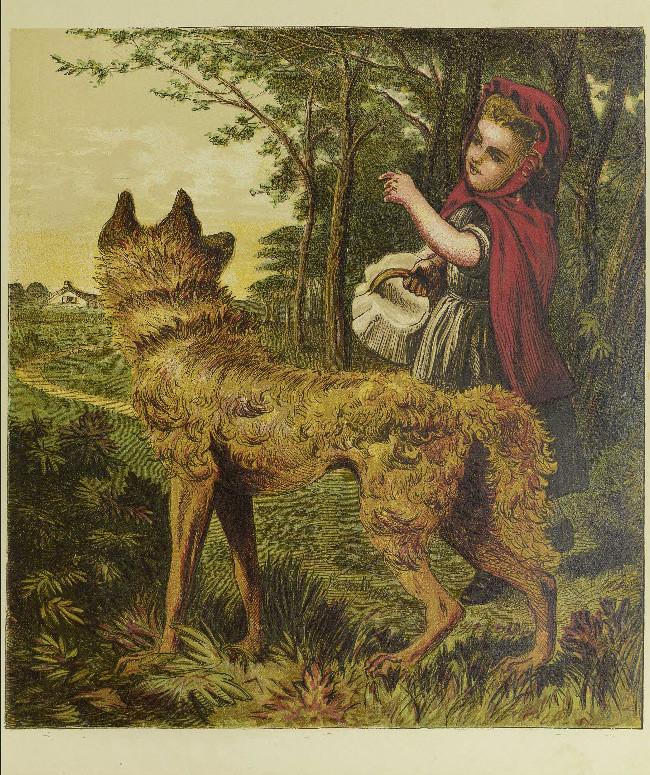
Secret Escapes and Heroic Journeys: An Introduction to Children’s Literature (Spring 2026)
This course will explore themes and trends in contemporary children’s literature with some attention to origins of the genre in folk tales and religious texts. We’ll read picture books and novels to expand our understanding of the ways authors represent children and their worlds and consider how these texts reveal and respond to current social concerns and critical perspectives in the field. Possible texts may include Where the wild things are (Sendak), They say blue (Tamaki), The Secret Garden (Burnett), The Wild Robot (Brown), Wolf Wilder (Rundell), The Wolves in the Walls (Gaiman), Danny Champion of the World (Dahl), Extra Yarn (Barnett), Ebb and Flow (Smith), and The Girl and the Wolf (Vermette).
ENGL 274: Literary Traditions
Professor Neil Surkan
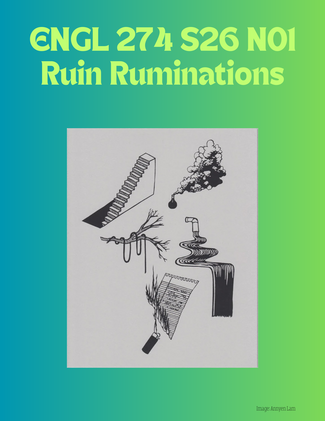
Ruin Ruminations
The Old English word “dustsceawung” translates, roughly, to “contemplation of the fact that dust used to be other things — the walls of a city, the chief of the guards, a book, a great tree.” Simply put, the destination of all things is dust, and remembering that we will someday be dust can be a means of finding peace. This course will examine the literary tradition of ruminating on ruins, from the earliest English poems all the way up to our present moment, in order to find both consolation and inspiration in the aftermath. Across the centuries, abandoned, eroding, wrecked, and deserted places — both metaphorical and literal — have fascinated poets, novelists, playwrights, and essayists alike. Whether nostalgically recollecting the “good old days,” lamenting the current state of disrepair, or enthusiastically looking ahead to whatever fantastical future will rise from the ashes, the speakers, narrators, characters, and essayists in this course begin at the end as they survey the damage — facing off with fate and faith alike. We presently find ourselves in an increasingly tenuous (and dire) relationship with the environment, which is forcing us to reckon with a future where previous ways of life will no longer be sustainable: how might reading a historical array of ruin ruminations heighten our sense of accountability, encourage us to scrutinize our complicities, and steady our resolve? Might we refresh our convictions among the wastes?
FILM 201: Introduction to Film Studies
Professor Paul Watkins
